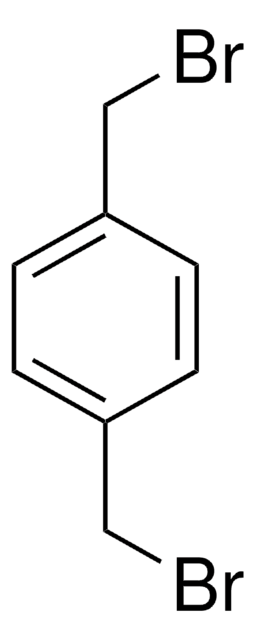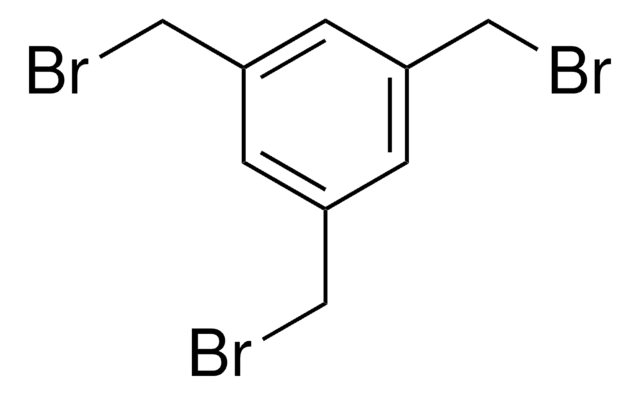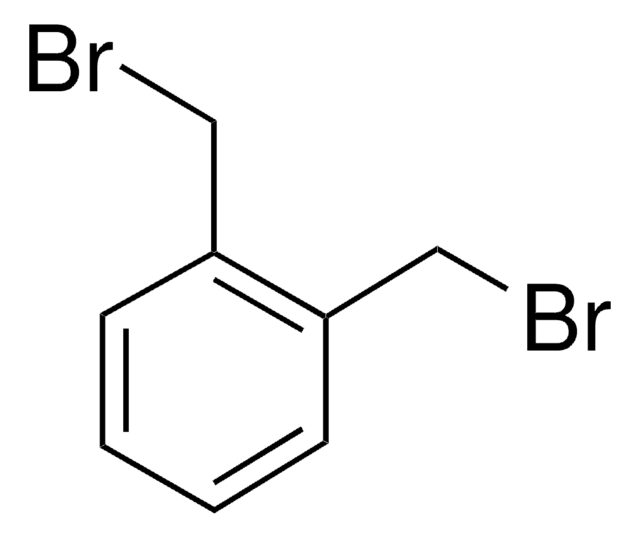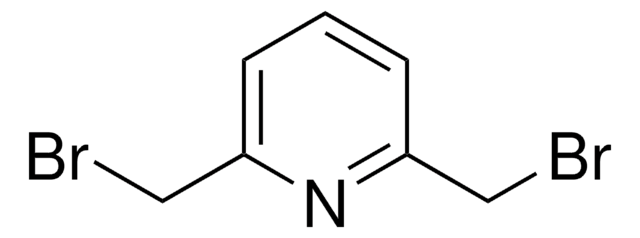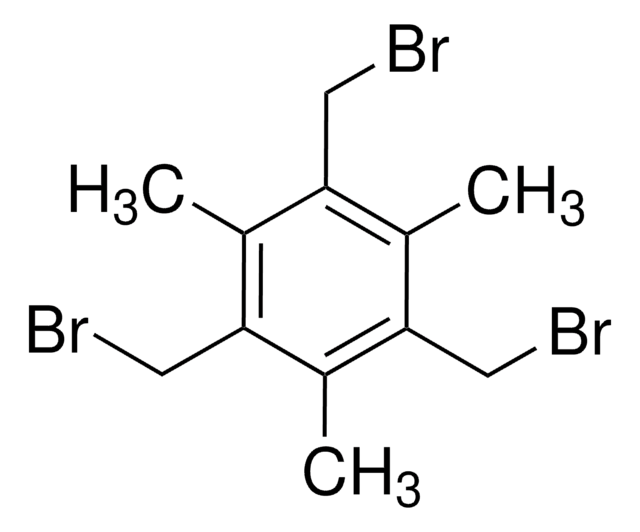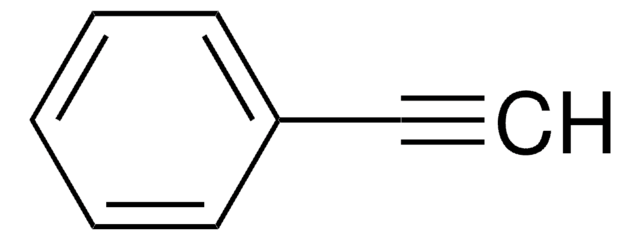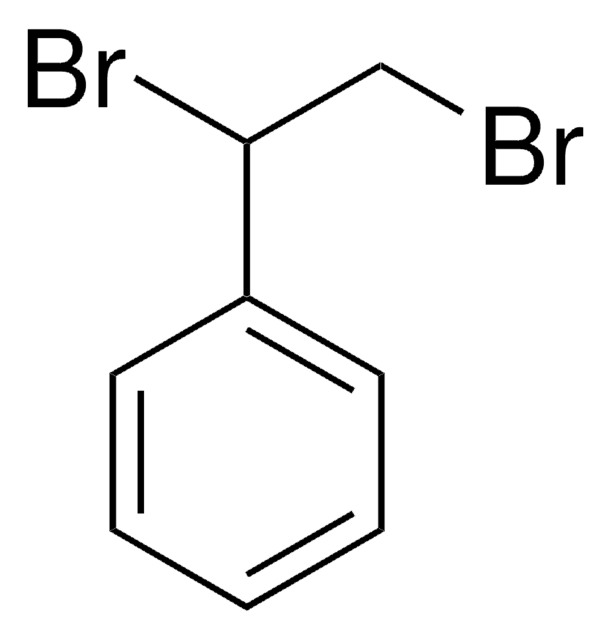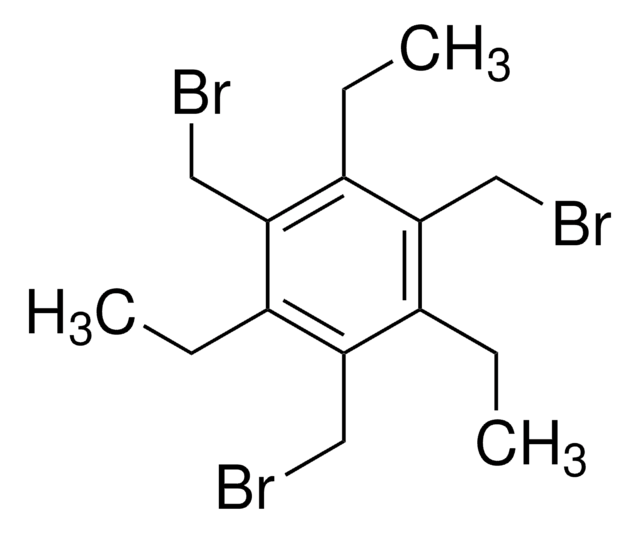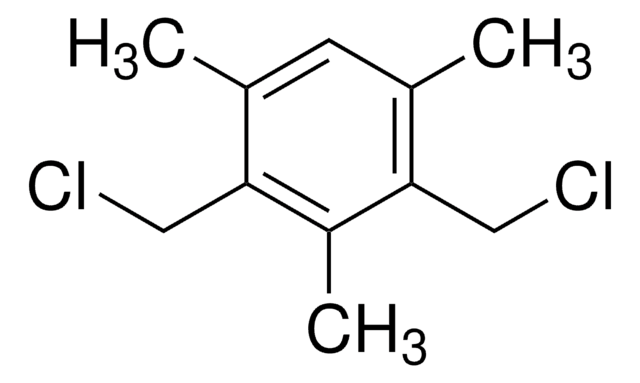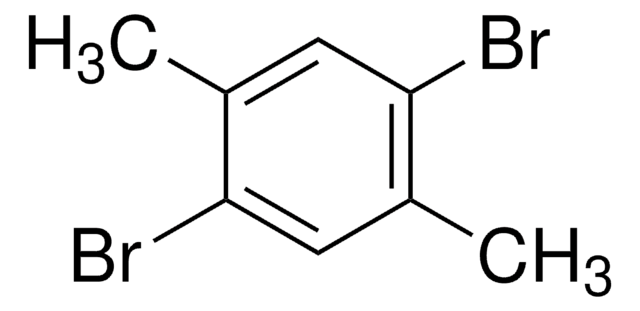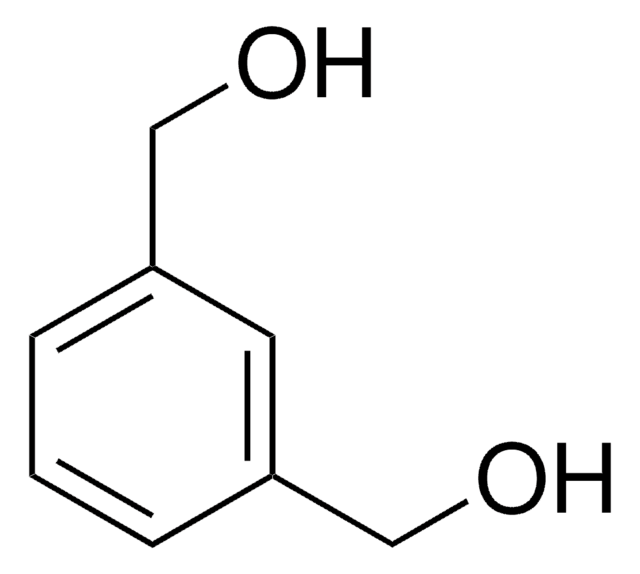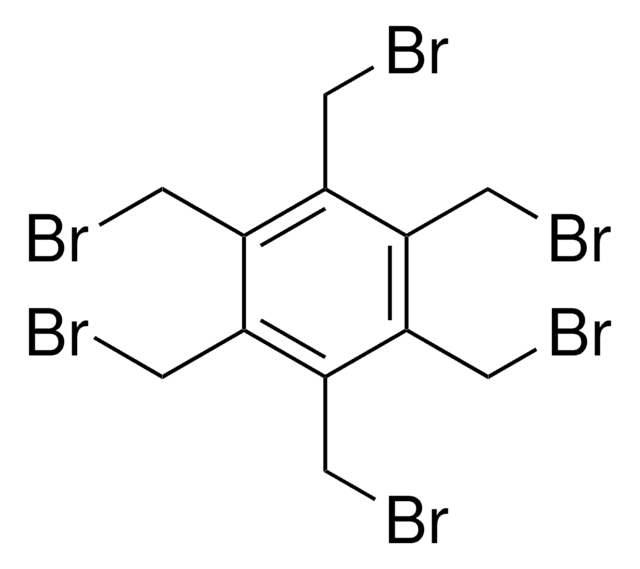125911
α,α′-Dibromo-m-xylene
97%
Synonym(s):
1,3-Bis(bromomethyl)benzene, m-Xylylene dibromide
About This Item
Recommended Products
Quality Level
Assay
97%
form
solid
greener alternative product score
old score: 10
new score: 6
Find out more about DOZN™ Scoring
greener alternative product characteristics
Waste Prevention
Atom Economy
Safer Solvents and Auxiliaries
Learn more about the Principles of Green Chemistry.
sustainability
Greener Alternative Product
bp
135-140 °C/20 mmHg (lit.)
mp
74-77 °C (lit.)
functional group
bromo
greener alternative category
SMILES string
BrCc1cccc(CBr)c1
InChI
1S/C8H8Br2/c9-5-7-2-1-3-8(4-7)6-10/h1-4H,5-6H2
InChI key
OXHOPZLBSSTTBU-UHFFFAOYSA-N
Looking for similar products? Visit Product Comparison Guide
Related Categories
General description
Application
Signal Word
Warning
Hazard Statements
Precautionary Statements
Hazard Classifications
Eye Irrit. 2 - Skin Irrit. 2 - STOT SE 3
Target Organs
Respiratory system
Storage Class Code
6.1A - Combustible acute toxic Cat. 1 and 2 / very toxic hazardous materials
WGK
WGK 3
Personal Protective Equipment
Choose from one of the most recent versions:
Already Own This Product?
Find documentation for the products that you have recently purchased in the Document Library.
Customers Also Viewed
Our team of scientists has experience in all areas of research including Life Science, Material Science, Chemical Synthesis, Chromatography, Analytical and many others.
Contact Technical Service